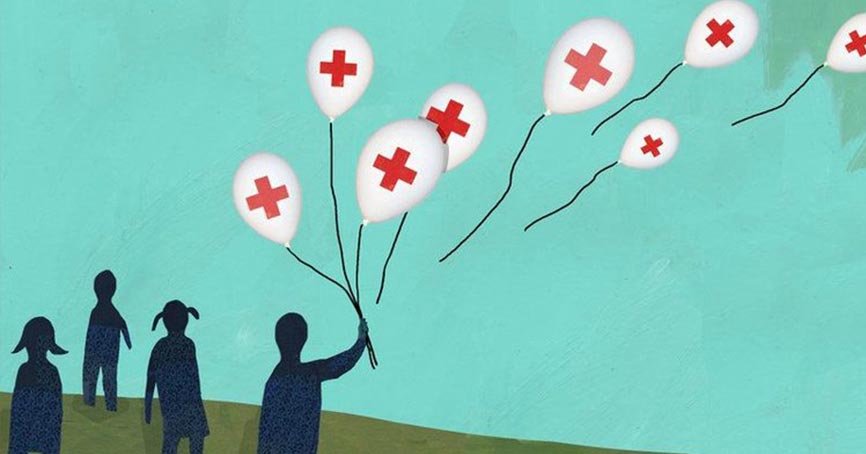The summer season is here and it brings with it the much-dreaded problem of kidney stones. There have been warnings by doctors time and again about the painful effects that kidney stones can bring about. The doctor may give a number of tips to prevent kidney stones and if followed, they are sure to help.
In India alone, approximately 5 to 7 million patients suffer from kidney stone disease and at least 1 in 1000 of Indian population needs hospitalization due to kidney stone disease.
(Source: Statistical and data mining reports on kidney stones)
What is a Kidney Stone?
The doctors warn us about it, we know it can be painful, but what exactly is a kidney stone?
A kidney stone is a solid object that is created out of "crystal-forming" minerals and substances in the urine. The urine of a person contains fluid and waste all dissolved together. However, if the waste is more than the fluid can dilute, crystals start forming. These crystals may sometimes be extremely painful, however, at other times, they may go unnoticed.
Some common types of kidney stones are calcium, uric acid, struvite, cystine, etc.
Are Kidney Stones more common during the summer season?
The summer season is extremely warm and physical activities can lead to loss of lots of fluids at once. Staying hydrated during this time would help one to prevent one of the most painful experiences in life. Water helps replenish the fluids lost due to heat and outdoor activities.
Especially for people working in extremely hot situations or those who don't have time to drink enough water, may develop kidney stones. This is more common during summers as one loses more water in the process of sweating but are unable to make up for the lost content. This high water loss leads to higher urine concentrations which aggravate the risk of kidney stone formation.
How would I know if I have Kidney Stones?
Kidney stones may vary in size and shape in different individuals. They can be as small as a grain of sand and can be as large as a pebble. However, the larger the pebble, the more painful the symptoms can be. Some of the most common symptoms are-
- severe pain in the lower back
- stomach ache/ vague pain
- blood in urine
- vomiting or nausea
- chills and fever
- smelly urine/ cloudy looking urine
How can I prevent Kidney Stones?
Kidney stones can be extremely painful and getting rid of it may involve an operation/ surgery. However, if taken care in time, one may not have the problem at all. Here are some of the ways in which one can prevent kidney stones-
- Hydration- Drink lots and lots of water to ensure the body receives enough hydration throughout the day. Consume at least 10 to 12 glasses of water without any added ingredients as it would help flush out harmful substances from the body.
- Avoid Caffeine- Caffeine dehydrates the body, so avoid black tea and coffee. In case you still have some, drink plenty of water to substitute for the fluid loss.
- Drink Lemon Water- Drinking large quantities of lemon water during summers reduces the risk of kidney stones considerably.
- Limit oxalate containing products- Oxalate containing products must be taken in moderation as they form calcium oxalate kidney stones. It is present in many food substances like beans, leaks, chocolate, wheat bran, blueberries, black tea, soy cheese, etc.
- Healthy Lifestyle- A healthy lifestyle is mandatory to prevent any form of diseases. Clean eating and daily exercise can prevent kidney stones as well as other forms of diseases.
- Limit salt intake- A high-sodium diet can increase the amount of calcium in urine which causes kidney stones. For people who are prone to kidney stones, a low sodium diet is recommended.
- Increase Magnesium and Citrate Intake- Magnesium is popular for reducing the risk of forming kidney stones. If a person is prone to kidney stones, it is best to increase magnesium intake. For magnesium-high foods, it is best to consume the least refined foods like brown rice, bananas, yogurt, and avocados.
- Urinate Frequently- Ignoring nature's call for too long is bad for the kidneys and also increase chances of suffering from kidney stones. The longer time the urine gets in the bladder, the more time the waste has to crystallize and form kidney stones.
- Consult a doctor and follow any dietary restrictions- For people who have had kidney stones in the past, it is best to consult a doctor for what must be avoided. Say, milk consumption should not exceed a certain limit, avoiding red meat and fish and so on. Some people may also advise against dry fruits and heavy vegetables like spinach, tomatoes, and pulses.
- Medicines- Certain medicines prevent the reoccurrence of kidney stones, however, they must only be taken under medical supervision.
- Family History- If one has a family history of kidney stones, they are more likely to have the disease themselves. If there is such a case, take care and consult a doctor for pain in the abdominal area.

 Jun 04, 2019
Jun 04, 2019
 May 30, 2018
May 30, 2018 May 10, 2018
May 10, 2018 May 17, 2018
May 17, 2018